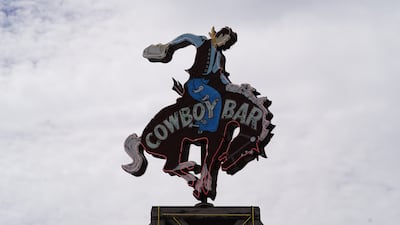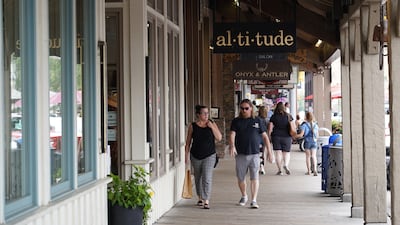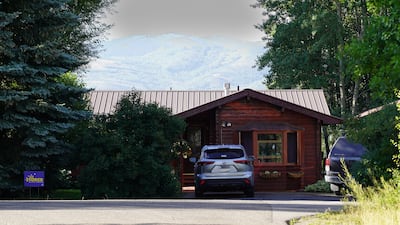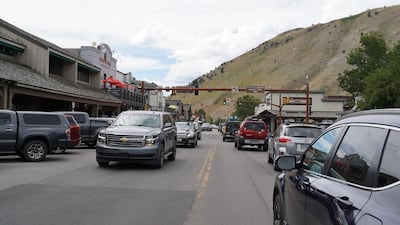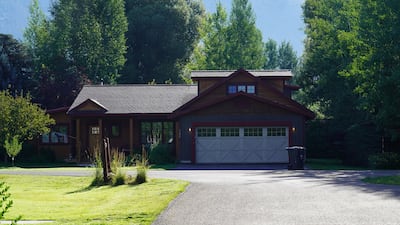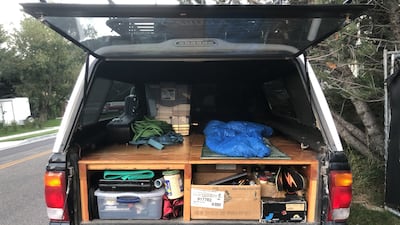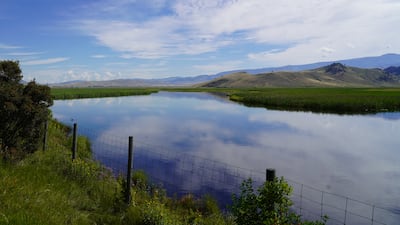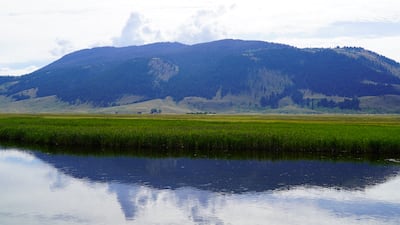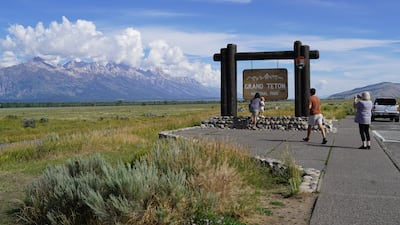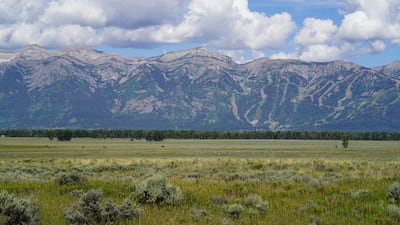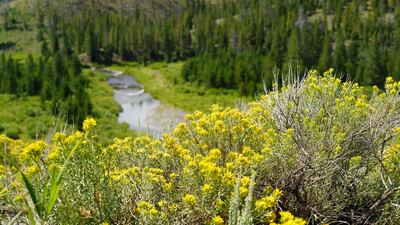Every night, Cody Cottier climbs into bed in his 1999 Ford Ranger pickup truck, tucking himself into a blue sleeping bag that lies on top of all his earthly possessions.
The vehicle, which Mr Cottier has affectionately named “Norris”, is an upgrade from previous summers, when the 26-year-old outdoors enthusiast slept in a “coffin-like” Subaru Outback.
“It's still not luxurious by a longshot,” said Mr Cottier. “But it's good enough for me, for now.”
Mr Cottier is one of a growing number of people in the picturesque ski-town of Jackson, Wyoming, who have been forced to live out of their cars because of rising house prices and soaring rent.
A 2021 study showed that there is a shortage of 5,300 houses in the Teton region, where Jackson is located. That's a significant number, considering the region’s population is only 34,000.
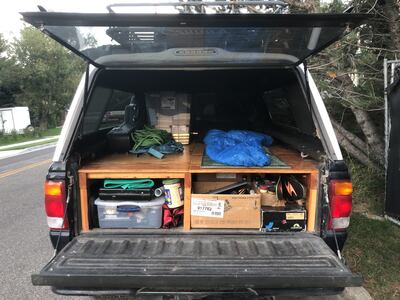
The study also found that mid-range homes are priced at about $2.9 million — putting it well out of reach for a person making $60,000 a year, a little more than the average per capita income in the US.
“It has just got astronomically difficult to own a home here or even to find a rental here,” said Clare Stumpf, co-ordinator of Shelter JH, an organisation dedicated to building grassroots support to address the area's housing crisis.
Jackson, whose high alpine meadows and jagged peaks give it an almost otherworldly beauty, is plagued by several issues, all of which stem from its desirability.
The town sits in a valley surrounded by large mountains, and 97 per cent of the land in and around the town is public, leaving only a sliver of buildable land left.
'Polar Express' ranch for sale in Wyoming for $17.5 million — in pictures
On top of that, Wyoming has no income tax, making it popular among the ultra-wealthy.
“We're a tourist town,” Ms Stumpf told The National. “So we rely a lot on service jobs and jobs that don't necessarily pay well, so it's kind of a recipe for disaster.”
Mr Cottier, who moved here after university to work for a local newspaper, now works at an outdoor equipment rental shop.
He long ago abandoned any hope of being able to afford a home in the area.
“I realised from the start that I would never be able to afford to live here long term,” he told The National from a park where he spends some of his downtime.
But in the four years he’s been in Jackson, it has become increasingly difficult for him to even find a room to rent in the winter, when it is too cold to sleep in his pickup.
His target price is $750 a month, which he says gets him less and less every year.

“I have continued to find housing at that price the whole time I've been here but I can see the quality of the housing declining every time I move into a new place,” he explained.
Jackson's world-class ski resort, raging rivers and untouched forests attract a certain type of person — one who is willing to rough it to be close to nature.
“I moved here to enjoy this incredible outdoor wonderland and, you know, I just prefer to live out of my truck and work a reasonable amount and be able to enjoy this place as opposed to grinding day in and day out to afford the average house,” said Mr Cottier.
The town's hefty housing price tag isn't unique: ski towns across the American West are struggling with sky-high prices, with local workers no longer able to afford to live there.
The pandemic has exacerbated the problem, with more and more people fleeing large urban areas and pushing already high prices even higher in some rural areas.
A study by the Colorado Association of Ski Towns found that rental prices increased from between 20 per cent to 40 per cent during the first year of the pandemic, while rental availability decreased significantly.
The study also found that newcomers with higher incomes often beat out locals for rental properties.
And this is not only the case for cookie-cutter mountain getaways: housing prices across the US have skyrocketed since the onset of the pandemic.
Home prices rose 18.8 per cent in 2021, well over the 10.4 per cent gain recorded in 2020, CNN reported. And the average price for rentals rose 13.4 per cent in 2022 compared to the previous year, according to CNBC.
Meanwhile, thanks to record levels of inflation, wages have stayed mostly stagnant. So although the influx of new people to Jackson has brought an increased demand for labour, workers can't afford to live in the area.
Some, like Mr Cottier, have had to get creative. But he's not sure how much longer he can take living in his current situation.

“As much as I want to stay in Jackson, it is getting difficult,” he explained. “I mean, it feels like I'm struggling against all odds to stay here.”
For now, the pull of the fresh air and the mountains remains strong enough for Mr Cottier to endure the discomfort of living out of his vehicle.
But when he eventually decides to move on, Jackson will have lost another valuable member of its community, a casualty of exorbitant housing prices.
